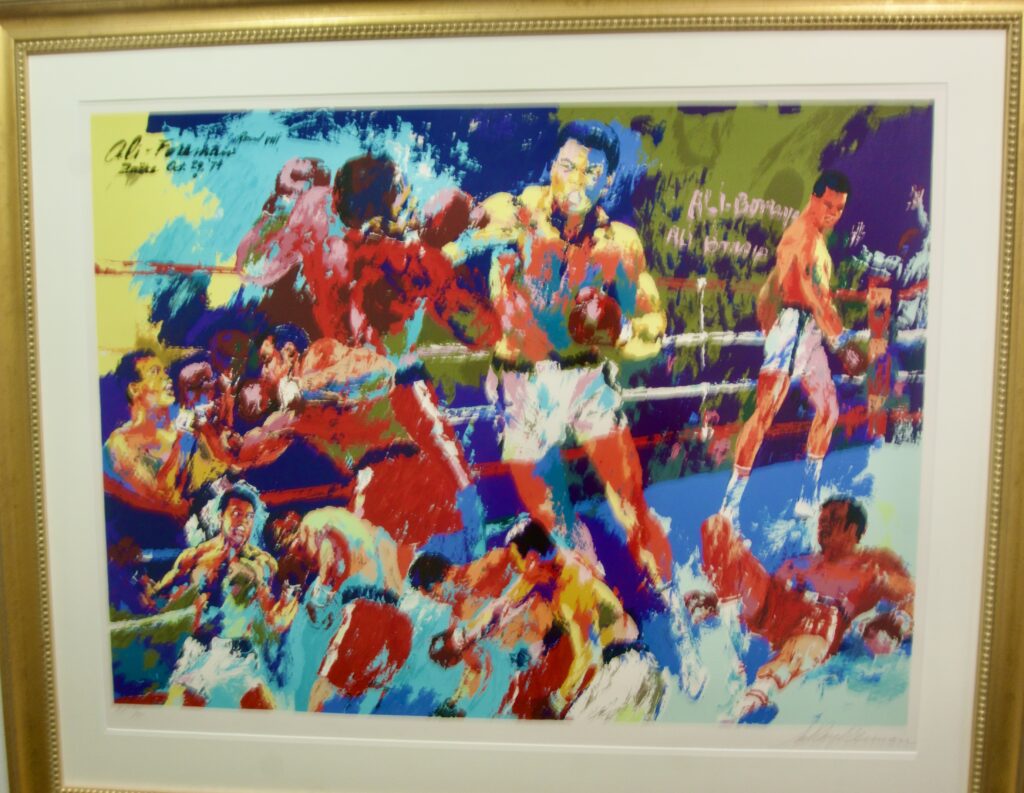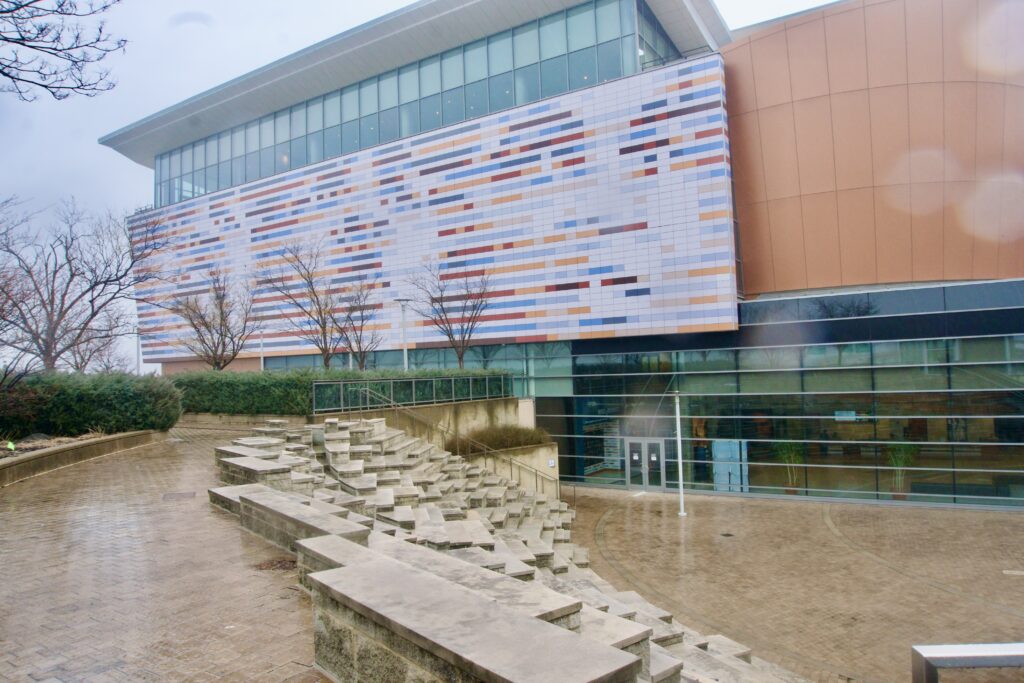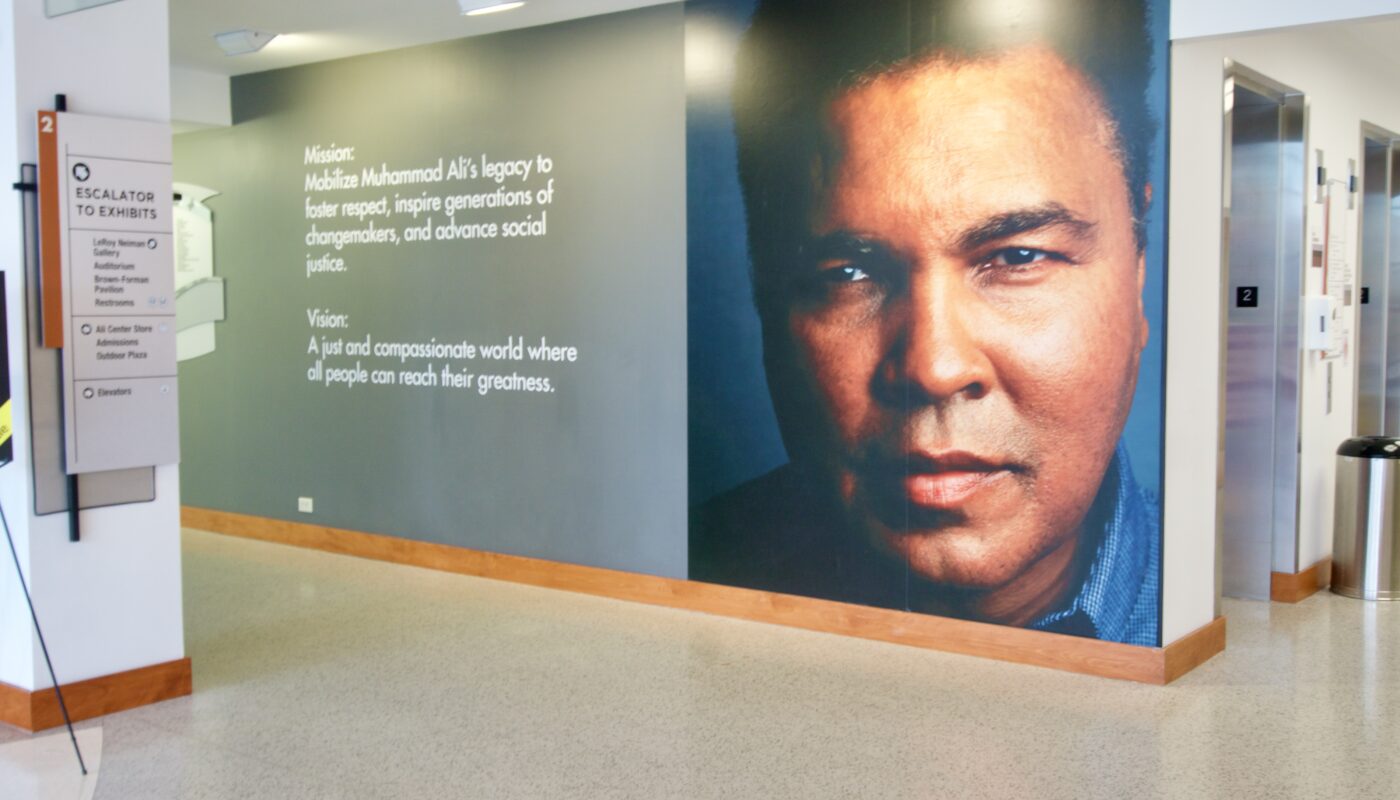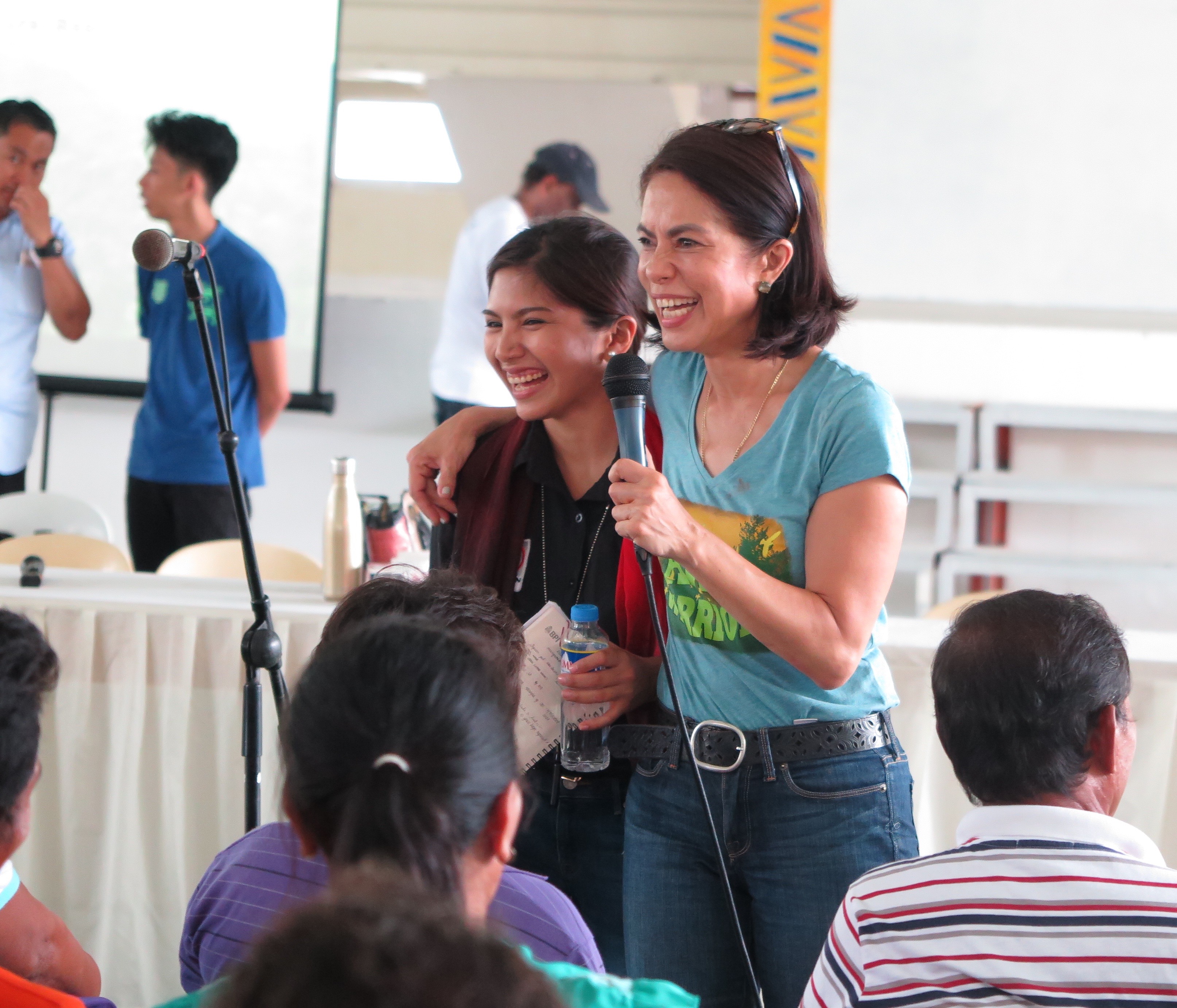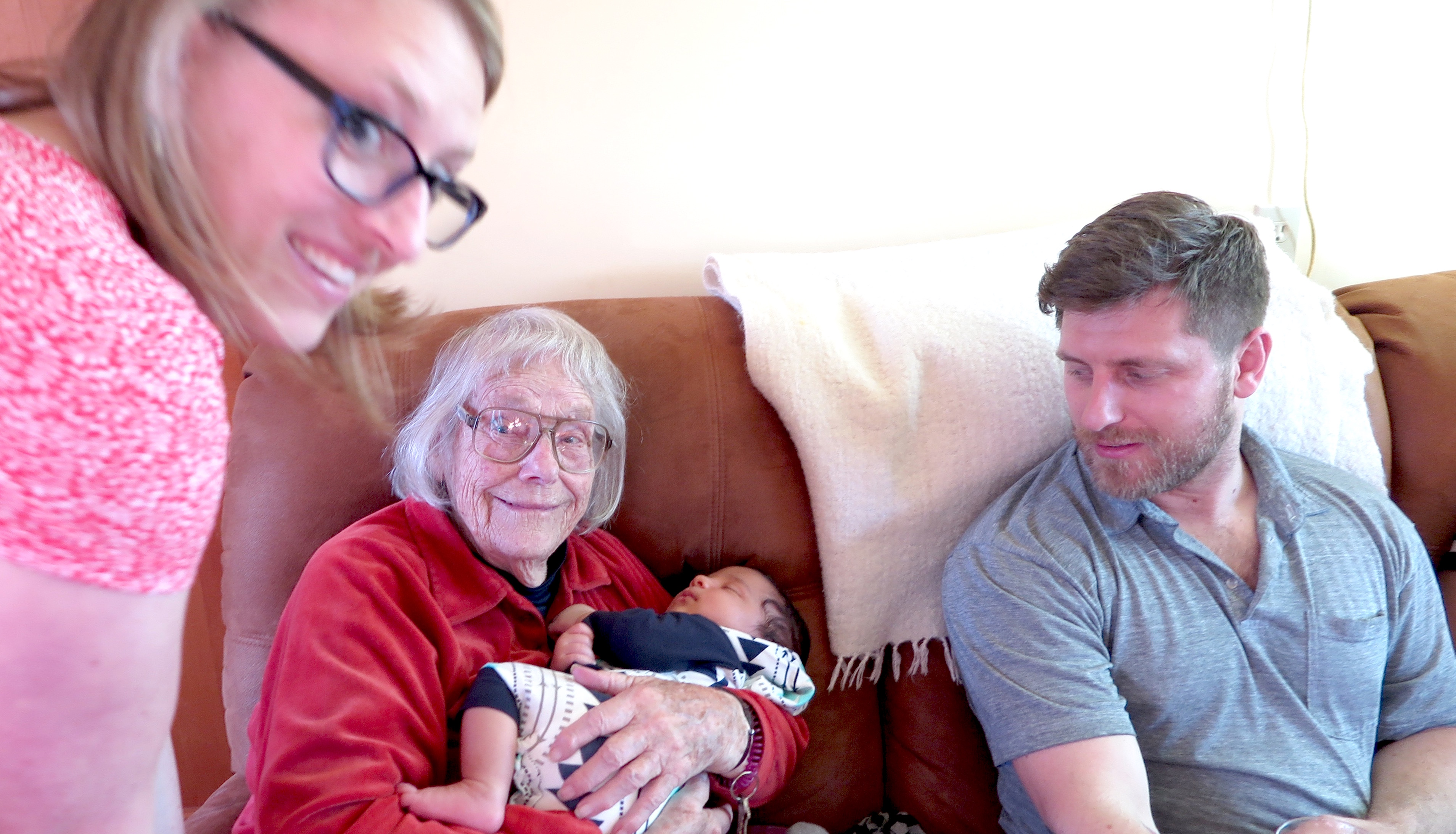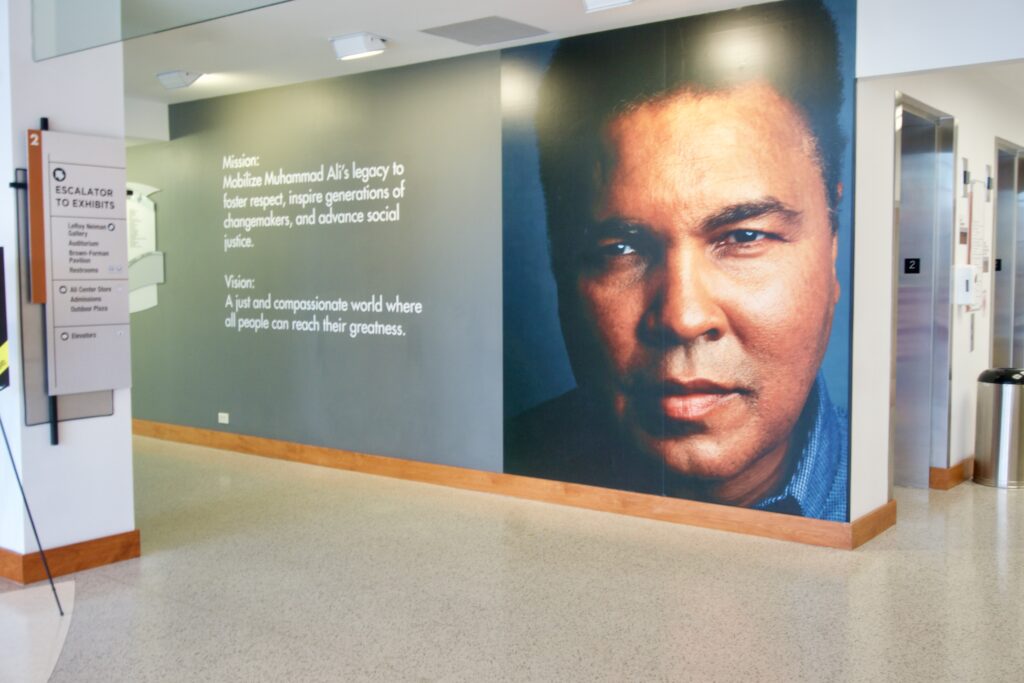
The memories and the message are everywhere inside the Muhammad Ali Center in Louisville, Kentucky. That’s the point of a museum dedicated to honor the life and achievements of the greatest American athlete of the 20th century, and the courage of an activist who influenced the two most significant social and political movements of the post-World War Two era – civil rights and opposition to the Vietnam war.
I had the chance to visit the Ali Center a week ago and was struck by the narrative decided by the curators. The story told in photographs, text, video, graphics and art is of a man determined to achieve the highest measure of his athletic strength, boxing skill, and intelligence to change the world – for sport, and for decisive social movements that advanced the public interest.
Ali is presented as the man we all knew him to be. Physically beautiful, tall and sculpted, with facial features befitting a god. He was supremely capable of saying precisely what he wanted to say, and heroic in presenting himself and his views in the ring, on television, and in public events.
The Muhammad Ali Center, constructed at a cost of $80 million and opened in 2005, is a gift to Louisville from Ali and his wife. Ali was born in Louisville in 1942, and named initially for another heroic figure in Kentucky, Cassius Marcellus Clay, a planter, military officer, and courageous abolitionist. Ali died in Phoenix in 2016. His funeral was attended by thousands of people who lined the streets of Louisville. He’s among the 120,000 people buried in Louisville’s 300-acre Cave Hill Cemetery.
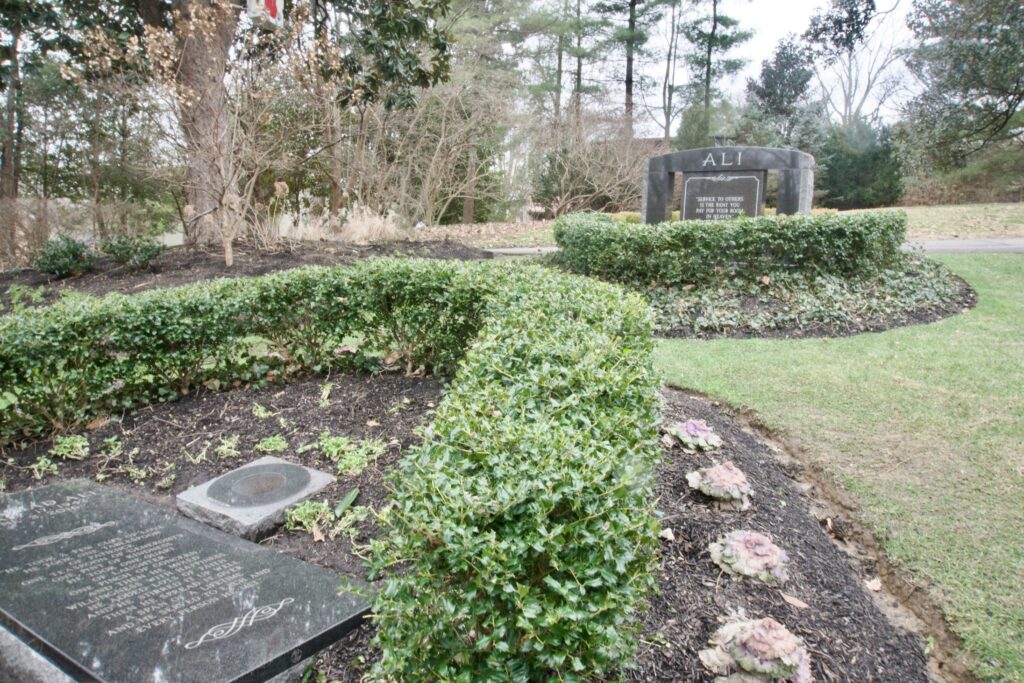
As you make your way through the Ali Center’s exhibits, the museum’s primary message steadily emerges. The boxer who won a gold medal and three times was world heavyweight champion evolved into a global figure of compassion and grace. Ali was motivated by his grit, his humanity, and his power to summon love from himself and those he touched.
While I was stirred by how Ali is presented, it also made me sad. I can think of no comparable figure in our midst today. Instead the nation is being overwhelmed by political and social personalities of raw cunning rather than intelligence. They disdain love, compassion, sensitivity.
Those virtues abound among us, of course, in our families, our friends, our businesses and communities. My prayer is that this moment in our national life produces a figure like Ali, capable of surpassing courage and love and instinct, a leader who can guide the country away from its contemporary path of menace and incompetence.
— Keith Schneider
